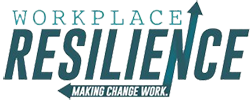After my two appointments downtown today, I got in my car, turned onto Fifth Street and carefully made my way onto 71 N. I’ve driven this route way too many times. In fact, I think my car knows the way to the freeway and to my house by now.
The point of me sharing this bit of information with you is because of what happened in today’s journey. 15 minutes after getting on the freeway, I was passing an exit when I realized that I didn’t remember much about getting there. How is that possible? How did I drive 15 minutes without really being aware of what was going on? The thought terrified me.
I bet each of you have had this experience at one point or another. You wake up in the morning and you have your routine. Maybe you get up and automatically run the shower and jump in. Maybe you instantly go over to the sink to wash your face and brush your teeth. Whatever it is, if you do it enough times, you don’t have to think too much about what comes next. In fact, you don’t have to think at all— you just do.
Research has been done to explore this very fact. They positioned rats in a maze and monitored their brain activity to see how long it would take them to find their way out. In the beginning, the rats needed to search and sniff to find their way. Time and time again, they ran through the same maze. As the number of times that they ran through the maze increased, their mental activity decreased. The rats no longer had to think very hard to find their way because it had become their habit.
You probably don’t like being compared to a rat, but we experience this same exact effect. When you have completed the same task time and time again, you no longer have to be fully present. Your brain can take a little rest. Thanks to habits, you get to preserve your brain energy for the more daunting tasks.
You know those positive affirmations that you enjoy reading on Facebook? They make you feel good for that moment but you might have problems making them stick before the bad thoughts sneak up on you again. You know why? The very same reason that you automatically get up in the morning and fix your breakfast without having to think so hard. It’s possible that these same negative thoughts have become a bad habit for you.
They creep into your mind without you even being aware of it. They run on an endless loop in your brain and reading a positive statement once a day is not going to solve the problem. Being told to “change your attitude” is not going to solve it either. The problem runs deeper than that.
The good news is that you can break this bad habit. You can learn to change the thoughts in your head but you need to be present. You need to be engaged in the process and be at full brain capacity to make this change. By consistently monitoring the conversation in your head and using targeted strategies to change each negative statement into a more positive one, you can slowly change your life.
It’s hard to quit a bad habit. To make a change, it takes hard work, commitment and consistent awareness. However, it’s worth the work when you realize that the change can positively impact every single aspect of your life.

